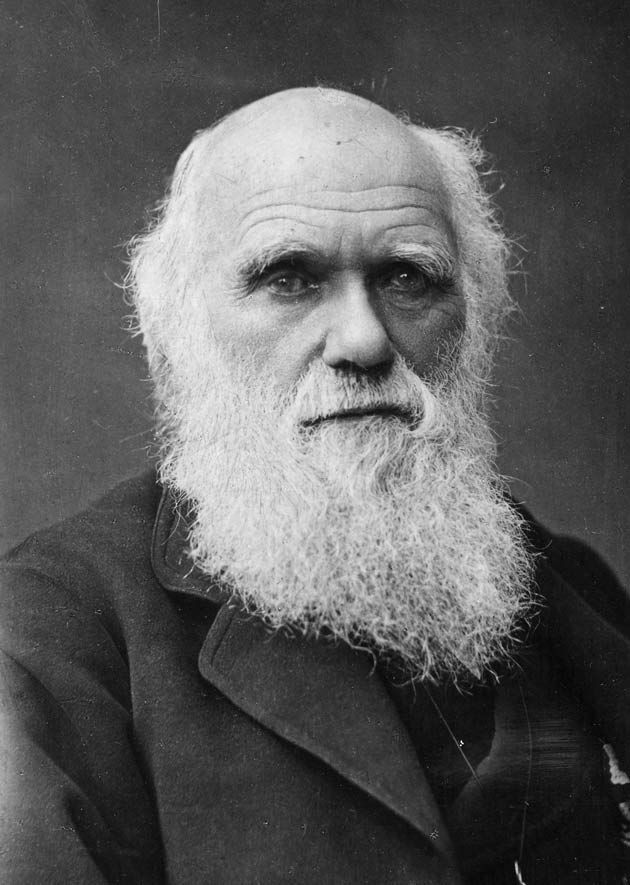More languages
More actions
(Created) Tag: Visual edit |
(I added an influences heading (not sure if that's cool, maybe it can be turned into a biography or timeline) and several citations which can be used later to flesh out the page more. I made links to some pages that didn't exist which I think are important.) Tag: Visual edit |
||
| Line 4: | Line 4: | ||
While [[Jean-Baptiste Lamarck|Lamarck]] had never explained how evolution worked, Darwin theorized that variation existed among organisms within a species. Organisms that were better adapted to their environment were more likely to survive, reproduce, and pass on their traits. Darwin never knew where these variations came from. He considered Lamarck's theory that changes come from organisms' interactions with their environments.<ref>{{Web citation|newspaper=[[Lalkar]]|title=Lysenko’s great contribution to the understanding of heredity|date=2010|url=http://www.lalkar.org/article/295/lysenkosgreat-contribution-to-the-understandingof-heredity|archive-url=https://web.archive.org/web/20230421042337/http://www.lalkar.org/article/295/lysenkosgreat-contribution-to-the-understandingof-heredity|archive-date=2023-04-21}}</ref> | While [[Jean-Baptiste Lamarck|Lamarck]] had never explained how evolution worked, Darwin theorized that variation existed among organisms within a species. Organisms that were better adapted to their environment were more likely to survive, reproduce, and pass on their traits. Darwin never knew where these variations came from. He considered Lamarck's theory that changes come from organisms' interactions with their environments.<ref>{{Web citation|newspaper=[[Lalkar]]|title=Lysenko’s great contribution to the understanding of heredity|date=2010|url=http://www.lalkar.org/article/295/lysenkosgreat-contribution-to-the-understandingof-heredity|archive-url=https://web.archive.org/web/20230421042337/http://www.lalkar.org/article/295/lysenkosgreat-contribution-to-the-understandingof-heredity|archive-date=2023-04-21}}</ref> | ||
== Influences == | |||
Charles Darwin's father, [[Erasmus Darwin]], was himself an intellectual and thought to have contributed to Darwin's thinking. Notably, Erasmus' work, ''The Temple of Nature'' has similar ideas to what would be seen in Darwin's ''On the Origin of Species''.<ref>{{Citation|author=Eva Guadalupe Hernández-Avilez, Rosaura Ruiz-Gutiérrez|year=2023|title=From one Darwin to another: Charles Darwin’s annotations to Erasmus Darwin’s ‘The Temple of Nature’|title-url=https://www.nature.com/articles/s41599-023-01616-y|pdf=https://rdcu.be/dqOgR|publisher=Humanities and Social Sciences Communications|doi=https://doi.org/10.1057/s41599-023-01616-y|volume=10}}</ref> | |||
Another major influence, [[Thomas Malthus]], reinforced the early formulations for the notions of competition between organisms.<ref name="autobiography">{{Citation|author=Charles Darwin|year=1887|title=The Autobiography of Charles Darwin|title-url=https://gutenberg.org/ebooks/2010|chapter=My Several Publications|city=London|publisher=John Murray}}</ref> Darwin read [[Essays on Population]], a major work which would go on to lend credibility to pseudo-scientific theories of [[Eugenics]] and [[Social Darwinism]].<ref>{{Citation|author=Peter Vorzimmer|year=1969|title=Darwin, Malthus, and the Theory of Natural Selection|title-url=https://www.jstor.org/stable/2708609|section=No. 4|page=527-542|publisher=Journal of the History of Ideas|doi=https://doi.org/10.2307/2708609|volume=30}}</ref> Though he had ideas of the "struggle for existence" prior and would write against methods of controlling the population in his work [[The Descent of Man]]<ref name="autobiography" /><ref>{{Citation|author=Charles Darwin|year=1879|title=The Descent of Man, and Selection in Relation to Sex|chapter=Chapter 21: General Summary and Conclusion|city=London|publisher=John Murray}}</ref> where near the end he states: | |||
{{Quote|“Hence our natural rate of increase, though leading to many and obvious evils, must not be greatly diminished by any means. There should be open competition for all men; and the most able should not be prevented by laws or customs from succeeding best and rearing the largest number of offspring.”|Charles Darwin|The Descent of Man|Chapter 21: General Summary and Conclusion}} | |||
== See also == | == See also == | ||
| Line 10: | Line 17: | ||
* [[Trofim Lysenko]] | * [[Trofim Lysenko]] | ||
* [[Gregor Mendel]] | * [[Gregor Mendel]] | ||
* [[Thomas Malthus]] | |||
* [[Erasmus Darwin]] | |||
== References == | == References == | ||
[[Category:Biologists]] | [[Category:Biologists]] | ||
{{DEFAULTSORT:Darwin, Charles}} | {{DEFAULTSORT:Darwin, Charles}} | ||
Latest revision as of 02:54, 11 November 2023
Charles Darwin | |
|---|---|
 | |
| Born | 12 February 1809 Shrewsbury, England, United Kingdom |
| Died | 19 April 1882 Down, England, United Kingdom |
| Nationality | English |
| Known for | Evolution Natural selection |
| Field of study | Biology |
Charles Robert Darwin (12 February 1809 – 19 April 1882) was an English biologist and theorist of evolution. His work was much more thorough than earlier theorists and contained large amounts of evidence. His ideas were revolutionary and challenged the creationist views of the clergy.
While Lamarck had never explained how evolution worked, Darwin theorized that variation existed among organisms within a species. Organisms that were better adapted to their environment were more likely to survive, reproduce, and pass on their traits. Darwin never knew where these variations came from. He considered Lamarck's theory that changes come from organisms' interactions with their environments.[1]
Influences[edit | edit source]
Charles Darwin's father, Erasmus Darwin, was himself an intellectual and thought to have contributed to Darwin's thinking. Notably, Erasmus' work, The Temple of Nature has similar ideas to what would be seen in Darwin's On the Origin of Species.[2]
Another major influence, Thomas Malthus, reinforced the early formulations for the notions of competition between organisms.[3] Darwin read Essays on Population, a major work which would go on to lend credibility to pseudo-scientific theories of Eugenics and Social Darwinism.[4] Though he had ideas of the "struggle for existence" prior and would write against methods of controlling the population in his work The Descent of Man[3][5] where near the end he states:
“Hence our natural rate of increase, though leading to many and obvious evils, must not be greatly diminished by any means. There should be open competition for all men; and the most able should not be prevented by laws or customs from succeeding best and rearing the largest number of offspring.”
— Charles Darwin, The Descent of Man, Chapter 21: General Summary and Conclusion
See also[edit | edit source]
References[edit | edit source]
- ↑ "Lysenko’s great contribution to the understanding of heredity" (2010). Lalkar. Archived from the original on 2023-04-21.
- ↑ Eva Guadalupe Hernández-Avilez, Rosaura Ruiz-Gutiérrez (2023). From one Darwin to another: Charles Darwin’s annotations to Erasmus Darwin’s ‘The Temple of Nature’, vol. 10. [PDF] Humanities and Social Sciences Communications. doi: https://doi.org/10.1057/s41599-023-01616-y [HUB]
- ↑ 3.0 3.1 Charles Darwin (1887). The Autobiography of Charles Darwin: 'My Several Publications'. London: John Murray.
- ↑ Peter Vorzimmer (1969). Darwin, Malthus, and the Theory of Natural Selection, vol. 30. Journal of the History of Ideas. doi: https://doi.org/10.2307/2708609 [HUB]
- ↑ Charles Darwin (1879). The Descent of Man, and Selection in Relation to Sex: 'Chapter 21: General Summary and Conclusion'. London: John Murray.
